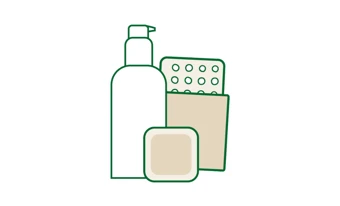
What is a Nurse Practitioner anyway?

At Menopause Wellbeing, your appointment could be with a doctor, or with one of our nurse practitioners – all of whom have specialised in sexual and reproductive health and menopause. But there's a bit of confusion about what exactly a nurse practitioner is, and what they can help with – so I thought I'd clear the air.
The nurse practitioner role is relatively new to Aotearoa. It was introduced in 2001 to enable nurses to do more and relieve pressure from doctors.
Te Whatu Ora Health New Zealand describes nurse practitioners as “highly skilled autonomous health practitioners who have advanced education, clinical training and demonstrated competency.”
What does it mean to be a nurse practitioner?
To become a nurse practitioner, registered nurses need to complete years of additional study and training. This includes a minimum of four years’ experience working in a specific area of practice, a clinical master’s degree, and passing a competency test. In total, it takes a minimum of nine years to qualify as a nurse practitioner.
What are the Menopause Wellbeing nurse practitioners trained in?
Nurse practitioners choose to specialise in an area – known as an area of practice – and work in that area for at least four years before sitting the nurse practitioner assessment. Menopause Wellbeing Nurse Practitioners have specialised in sexual and reproductive health and have a special interest in menopause.
How can a nurse practitioner help me with my menopause?
Nurse practitioners can carry out a range of tasks typically associated with doctors. This includes:
- ordering and interpreting laboratory and diagnostic tests
- carrying out in-person procedures
- prescribing almost all medicines, including hormone therapy (HRT) and other medications used to treat menopause symptoms
Our nurse practitioners have excellent relationships with very experienced doctors within the organisation and on rare occasions, they may consult a doctor colleague to ensure you receive the best care possible.
Why do people choose to become nurse practitioners?
I think being a nurse practitioner is the best of both worlds. It allows you to combine the nurturing side of nursing with advanced and comprehensive skills in diagnosis and treatment. Choosing an area of practice also means you can really develop your expertise in a particular field.



